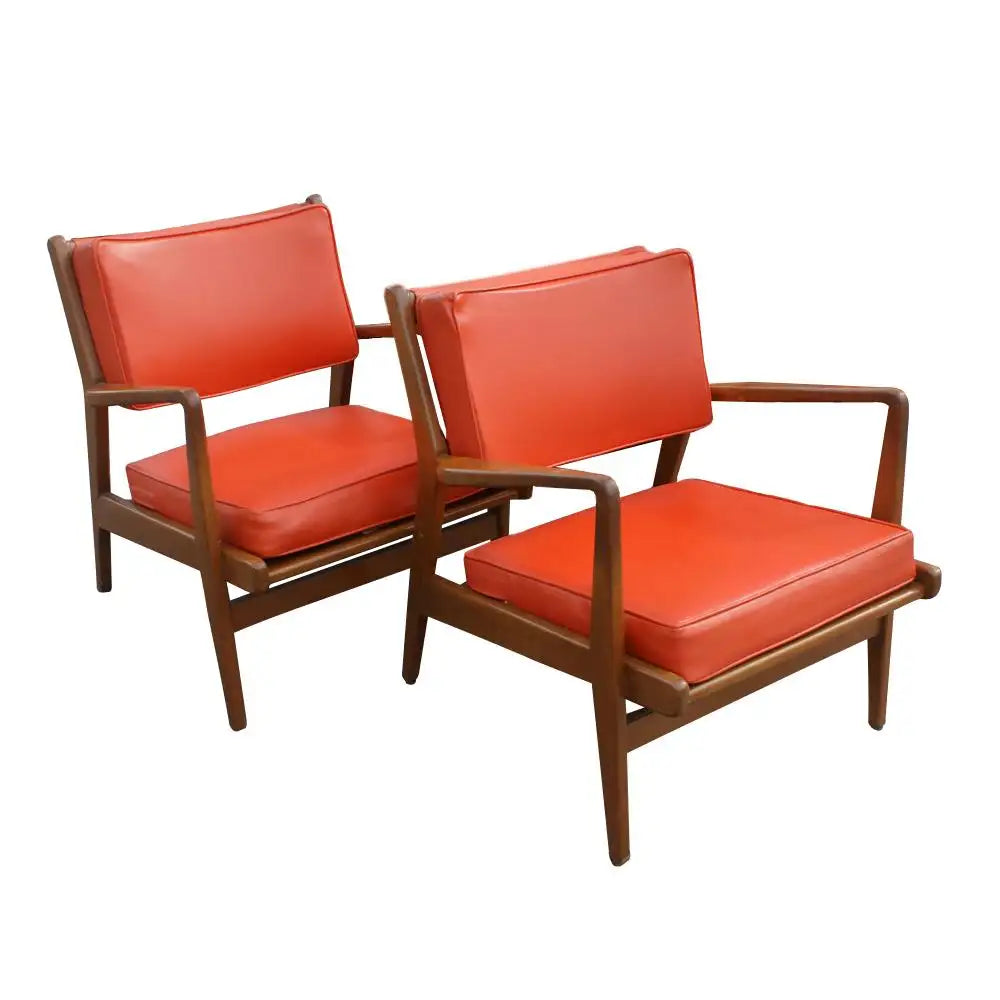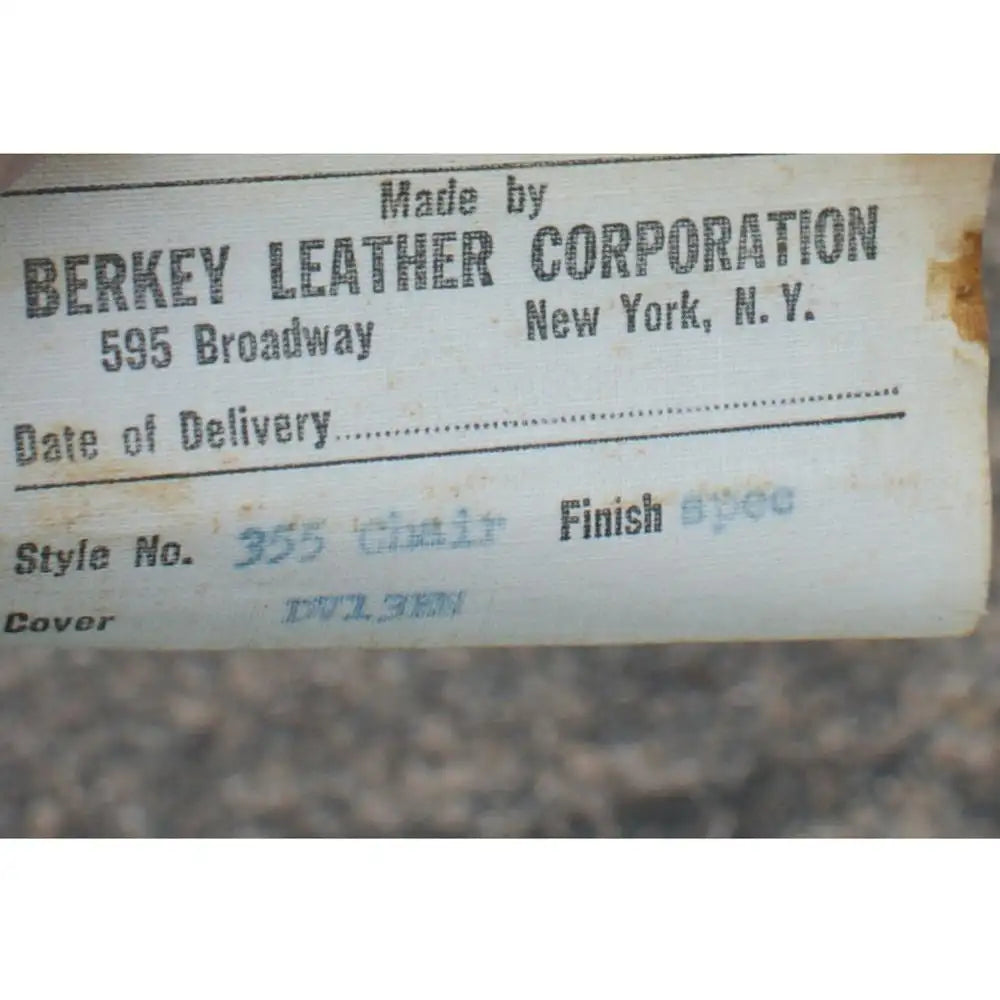Jens Risom
Pair of Jens Risom Walnut Lounge Chairs
Pair of Jens Risom Walnut Lounge Chairs
Couldn't load pickup availability
Share
A pair of Mid-Century Modern lounge chairs designed by Jens Risom
1960s
These chairs are from the University of Texas library.
Walnut frames with turquoise Naugahyde cushions.
Age appropriate wear. Reupholstery recommended.
Also available in orange Naugahyde.
Dimensions
27″ Width 26″ Depth 29.5″ Height
17″ Seat Height 24.5″ Arm Height
Condition
Very Good Condition
Preparation, Timing and Shipment
See shipping details on HOME page
Jens Risom
Jens Risom emigrated from Europe to the U.S. when he was just 23 years of age. Like other Scandinavian designers such as Josef Frank and Kaare Klint, Risom continued to honor tradition in modern design, combining old and new in highly original ways.
Jens Risom`s career has spanned nearly sixty years. He began his study of design in the Copehagen workshop of Kaare Klint in 1935 and joined Ernst Kuhn`s architectural office in 1938, where he designed furniture and interiors. In 1939, Risom emigrated to the U.S. and in 1941 designed the first chair manufactured by Knoll. Risom described the chair as “very basic, very simple, inexpensive, easy to make.” The chair was constructed with a birch wood frame and, because of wartime materials constraints, cheap but strong army surplus webbing and has inspired countless imitations.
Risom continued to create simple, well-crafted modern furniture with Knoll and George Jensen, but established his own design studio, Jens Risom Design, in 1946. The studio was acquired by Dictaphone in 1970 and in 1973, Risom became chief executive of Design Control, a Connecticut based design consultancy.
In the 1970`s, he acted as a trustee of the Rhode Island School of design. Now in his eighties, Jens Risom continues to be active and his work continues to reflect the Danish approach to modernism, with its emphasis on traditional values and the human need for warmth, beauty and simplicity. Modern American design owes much to his unfailing sense of proportion, commitment to practicality and insight into the forms of modern living.












